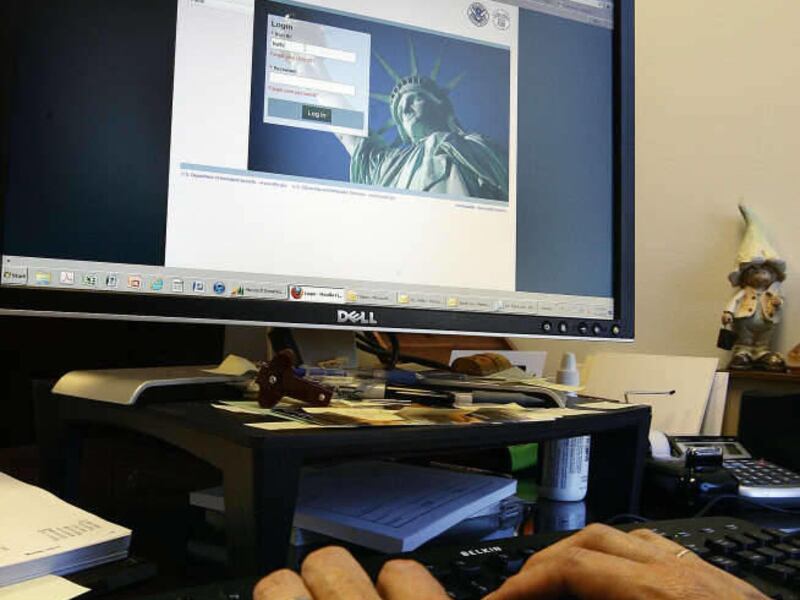When the Senate passed its immigration reform bill in May, one of the provisions in the legislation required all employers to participate in the E-Verify program, under which employers check that all of their employees have legal status in the United States.
But such a requirement is an "expensive and wrongheaded labor market regulation," argues Alex Nowrasteh, immigration policy analyst at the Cato Institute, in an article for The Federalist.
"E-Verify will make it harder for hundreds of thousands of legal Americans to get a job," he said. "According to a recent independent audit of E-Verify conducted by the firm Westat, between 0.7 to 0.3 percent of all E-Verify queries produced erroneous TNCs (preliminary red flags on workers' eligibility), meaning they were issued to legal workers."
Nowrasteh added that the Westat audit found that the E-Verify system also fails to catch half of unauthorized workers, while costing taxpayers and private businesses substantial amounts of money — $2.1 billion in government expenditures alone over the course of a decade.
"Immigration reform should make compliance with the law easier, not create more of an incentive to break it. E-Verify is supposed to make enforcing immigration law easier, but it imposes an enormous economic cost on Americans while incentivizing black market hiring — it should be scrapped," he concluded.
Defenders of E-Verify say the program works well to ensure that only legal workers are able to obtain American jobs.
"If you think that the desire to identify people who work is an important societal value, you have to understand that that's going to have some incidental adverse cost," said Paul Rosenzweig, a scholar at the conservative Heritage Foundation who worked in the Department of Homeland Security during the Bush administration, in an interview with the Washington Post.
"The last GAO study had less than 1 percent error rate," Rosenzweig said. "If I told you that you were going to get a 99 on your test, you'd think that you were doing pretty darn well. I defy you to find any government program that meets that standard with regularity."
According to Heesun Wee at CNBC, small businesses can expect to see increased costs associated with participating in E-Verify.
"We expect it to be a significant fixed cost," J. Kelly Conklin, president of an architectural woodworking firm in Bloomfield, N.J., told Wee. "It's going to be a complete pain in the neck."
Jeff Vining, an analyst at tech research firm Gartner, told Wee he estimates a small business will likely pay about $3,000 or less to meet E-Verify rules.
Some small business owners, however, are happy to see the program implemented. "I am tired of losing work to people who cheat the system and undercut my prices because they don't have the same overhead as I have because I follow the rules," said Charlie Arnold, who runs a power-washing business in Delaware, to Wee. "I am for it simply because in the long run it will help my business."
Email: dmerling@deseretnews.com


